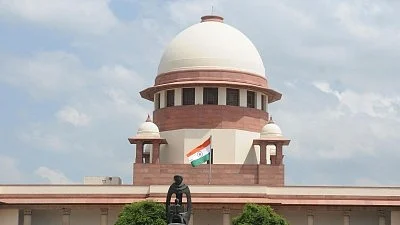Two days after the retirement of Justice Jasti Chelameswar, the Supreme Court, on 24 June, notified a new roster for the allocation of cases to the judges, which will come into effect from 2 July when the top court reopens after summer vacation.
Like the previous roster notified on 1 February, the new roster says that the bench headed by Chief Justice of India Dipak Misra will hear all public interest litigations, besides pleas relating to social justice, elections, habeas corpus, and contempt of court.
Justice Ranjan Gogoi, who is the senior-most judge after the chief justice following the retirement of Justice Chelameswar on 22 July, will deal with labour laws, indirect taxes, personal law and company law cases.
The roster was put in the public domain for the first time on 1 February after justices J Chelameswar, Gogoi, MB Lokur, and Kurian Joseph had held an unprecedented press conference on 12 January questioning the allocation of sensitive PILs and important cases to judges junior to them.
The notification lists the matters that will be heard by benches headed by the chief justice and 10 other judges — Gogoi, Lokur, Joseph, AK Sikri, SA Bobde, NV Ramana, Arun Mishra, AK Goel, RF Nariman, and AM Sapre.
The bench presided over by Justice Lokur has been allocated matters which include cases relating to service, social justice, personal laws, land acquisition, mines and minerals, consumer protection, and armed and para-military forces.
Justice Lokur will also hear matters dealing with ecological imbalance, protection and conservation of forests, protection of wild life, felling of trees, and underground water levels.
Justice Joseph's bench has been assigned cases of labour laws, rent Act, family laws, contempt of court, and personal law.
He will also hear matters related to religious and charitable endowments, besides all land laws and agriculture tenancies.
Justice Sikri, who will be the new member of the five-member apex court Collegium, will hear cases of direct and indirect taxes, election and criminal matters, personal law, contempt of court, ordinary civil cases and appointment of law officers.
Besides these top five judges, the new roster also spells out matters to be heard by six other judges heading benches.
After the 12 January press conference, there were hectic parleys involving judges of the Supreme Court, the Supreme Court Bar Association (SCBA) and the Bar Council of India (BCI).
The SCBA had come out with a resolution saying that the apex court should follow a roster system for the allocation of matters to the judges after taking into account the prevalent practices in the Delhi High Court and other high courts of the country.
(At The Quint, we question everything. Play an active role in shaping our journalism by becoming a member today.)
